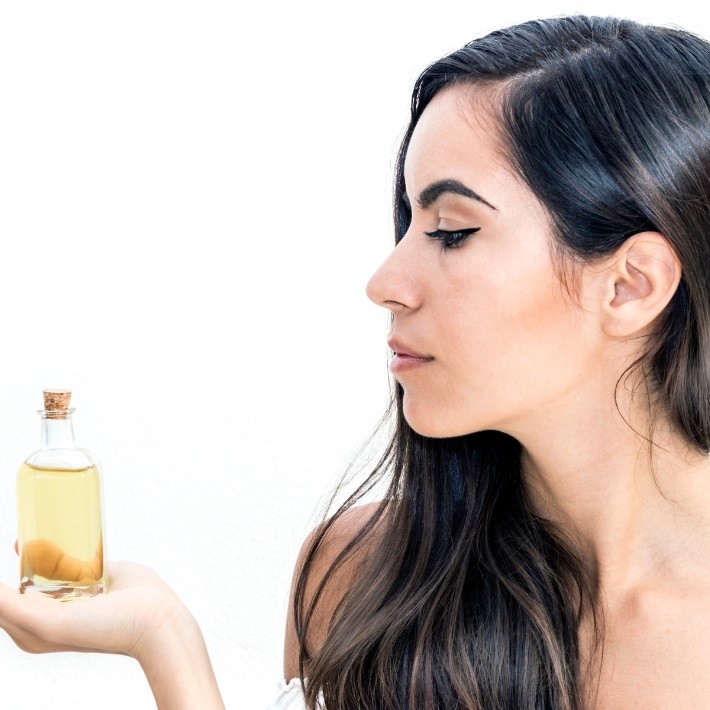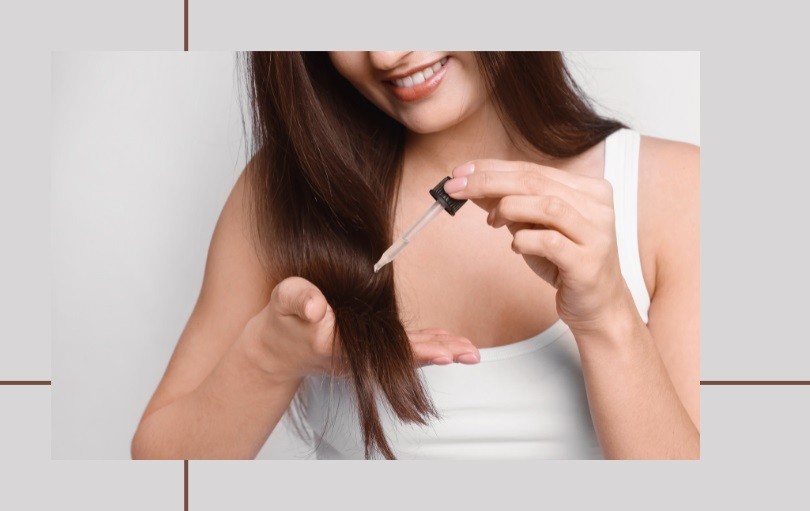Last Updated on July 6, 2025
Let’s face it – we’re always on the lookout for ways to keep our hair in tip-top condition. One question that’s been floating around is, “Do Oils Moisturize Hair?” In this article, we’ll dive deep into the world of hair oils, including how they work, which ones are best for your hair type, and the benefits they can offer. So buckle up, and let’s get to the bottom of this hair care mystery!
Do Oils Moisturize Hair?

The Science Behind Hair Oils
Before we can address the question, “Do Oils Moisturize Hair?”, we need to understand the science behind hair oils. Oils are lipids, which are naturally occurring substances that can provide a protective barrier for the hair shaft. This barrier helps lock in moisture and prevent damage from environmental factors.
The Role of Sebum
Our scalp naturally produces an oil called sebum, which is responsible for keeping our hair and skin moisturized. Sebum is composed of various lipids, including triglycerides, cholesterol, and fatty acids. While sebum does a great job of keeping our hair moisturized, it can sometimes be insufficient, especially for those with dry or damaged hair. That’s where hair oils come into play.
Related: How To Fix Over Moisturized Hair?
The Different Types of Hair Oils
There are a plethora of hair oils available, each with its own set of benefits. Here are some of the most popular options:
Coconut Oil
Coconut oil is packed with fatty acids that can penetrate the hair shaft, helping to moisturize and strengthen the hair. It is an excellent choice for those with dry or damaged hair.
Argan Oil
Argan oil is rich in antioxidants and essential fatty acids, which can help improve hair elasticity and prevent breakage. This oil is best suited for those with frizzy or unmanageable hair.
Jojoba Oil
Jojoba oil is similar in composition to the natural sebum produced by our scalp. This makes it a great option for those with oily or acne-prone skin, as it can help regulate oil production without clogging pores.
The Truth About Hair Oils and Moisture

Now that we’ve discussed the science behind hair oils and the different types available, it’s time to answer the question, “Do Oils Moisturize Hair?” The answer is both yes and no.
Yes, Oils Can Moisturize Hair
Oils can help lock in existing moisture and provide a protective barrier for the hair shaft. They can also penetrate the hair shaft, helping to improve elasticity and overall hair health. Additionally, oils can replenish the natural sebum that our scalp produces, which is essential for maintaining proper moisture levels in our hair.
No, Oils Don’t Directly Add Moisture
However, oils don’t directly add moisture to the hair. Instead, they help retain the moisture that’s already present. In other words, if your hair is already dry and lacking hydration, applying oil alone may not be sufficient to moisturize it. In this case, you’ll need to incorporate other moisturizing products, like leave-in conditioners or hair masks, into your hair care routine.
Related: Can You Perm Bleached Hair?
Choosing the Right Oil for Your Hair
Now that we know the answer to “Do Oils Moisturize Hair?” is somewhat complex, it’s crucial to choose the right oil for your hair type and specific needs. Here are some tips to help you make an informed decision:
Know Your Hair Type
Understanding your hair type is essential for selecting the right oil. For instance, if you have fine hair, you may want to opt for lighter oils like jojoba or grapeseed oil. On the other hand, those with thicker or more textured hair may benefit from heavier oils like coconut or castor oil.
Consider Your Hair Concerns
Different oils offer varying benefits, so it’s essential to choose one that addresses your specific hair concerns. For example, if you struggle with dandruff or an itchy scalp, you may want to consider using tea tree oil. If your primary concern is hair growth, castor oil may be the better choice.
Experiment and Adjust
Finding the perfect oil for your hair may require some trial and error. Don’t be afraid to experiment with different oils and adjust your hair care routine accordingly. Remember, what works for someone else may not necessarily work for you, so be patient and give each oil a fair shot.
How to Apply Hair Oils?
Now that you’ve chosen the right oil for your hair, it’s time to learn how to apply it correctly. Here are some steps to follow for optimal results:
Start with Clean, Damp Hair
For the best results, apply hair oil to freshly washed, damp hair. This will help the oil absorb more easily and lock in moisture more effectively.
Use the Right Amount
Using too much oil can weigh your hair down and make it look greasy. Start with a small amount – about the size of a dime – and add more as needed, depending on your hair length and thickness.
Focus on the Ends
When applying oil, focus on the ends of your hair, as these are the most prone to damage and dryness. Work your way up the hair shaft, stopping about halfway. Avoid applying oil directly to your scalp, as this can make your hair appear greasy and weighed down.
Related: How To Apply Toner To Bleached Hair?
The Benefits of Hair Oils
Aside from their moisturizing properties, hair oils offer several other benefits:
Frizz Control
Oils can help tame frizz and flyaways, giving your hair a smoother, more polished appearance.
Heat Protection
Some oils, like argan and coconut oil, can provide a protective barrier against heat damage from styling tools like flat irons and curling wands.
Enhanced Shine
Oils can add a natural-looking shine to your hair, making it appear healthier and more vibrant.
Improved Manageability
By providing moisture and reducing frizz, hair oils can make your hair more manageable and easier to style.
Frequently Asked Questions (FAQs)
1. Can I use hair oil every day?
This depends on your hair type and the oil you’re using. Lighter oils like jojoba and grapeseed oil can be used daily for most hair types, while heavier oils like coconut or castor oil may be better suited for weekly use.
2. Can I mix different oils together?
Absolutely! Mixing different oils can help you customize your hair care routine and target specific concerns. Just be sure to research the properties of each oil to ensure they’re compatible.
3. How long should I leave the oil in my hair?
This varies depending on the oil and your hair type. For a quick moisture boost, you can leave the oil in your hair for 30 minutes to an hour. For deeper conditioning, consider leaving the oil in overnight.
4. Can I use hair oil on colored or chemically treated hair?
Yes, you can! In fact, using hair oils can be especially beneficial for colored or chemically treated hair, as these processes can strip the hair of its natural moisture.
5. How do I remove oil from my hair?
from your hair, simply wash it with a gentle shampoo. You may need to shampoo twice to ensure all the oil is removed. Follow up with a conditioner to maintain your hair’s moisture balance.
6. Can I use cooking oils on my hair?
While some cooking oils, like coconut oil and olive oil, can be used on hair, it’s important to use high-quality, cold-pressed, unrefined versions to reap the most benefits. However, not all cooking oils are suitable for hair care, so be sure to research before applying anything to your hair.
Conclusion
So, do oils moisturize hair? The answer is both yes and no. While oils can help lock in moisture and provide a protective barrier, they don’t directly add moisture to your hair. To maintain healthy, moisturized hair, it’s essential to incorporate other hydrating products into your hair care routine and choose the right oil for your hair type and needs. With a bit of experimentation and patience, you can unlock the full potential of hair oils and achieve the luscious locks you’ve always desired!

